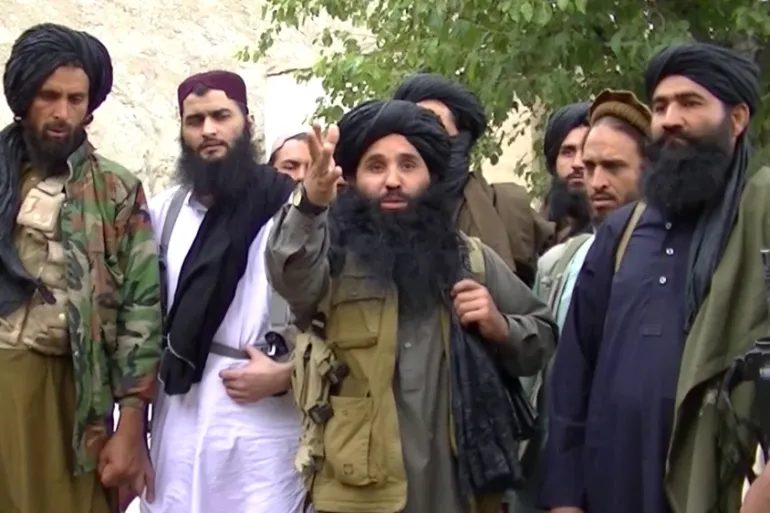Afghanistan: Safe Havens for Terrorism and a Threat to Global Peace
The killing of TTP commander Rahimullah alias Shahid Umar in Afghanistan’s Kunar province has once again exposed the unchecked presence of terrorist groups like the Tehrik-i-Taliban Pakistan (TTP). While Pakistan celebrates this as a major success in its war on terror, the incident highlights deeper issues—Afghanistan’s role as a terror haven and the internal collapse within TTP leadership.
This development sends a stark warning: if Afghanistan fails to act decisively, regional peace and global stability will continue to suffer.
Shahid Umar’s Death: A Major Blow to TTP
Shahid Umar, a senior TTP commander, played a significant role in orchestrating cross-border attacks on Pakistan. His death, allegedly due to internal rivalries or the bounty of Rs. 10 million, signals rising tensions and disunity within the TTP.
While this is a tactical success for Pakistan, the broader implications are clear: Afghanistan continues to serve as a safe haven for terrorists. From Kunar to other provinces, TTP operatives move freely, exposing the Taliban’s hollow denials of harboring militant groups.
For more on security developments, visit our Pakistan News section.
Taliban’s Hypocrisy: Terror Support Exposed
Afghan Taliban claims of distancing themselves from the TTP are increasingly untenable. The presence of Shahid Umar and the historical assassinations of leaders like Umar Khalid Khorasani and Mullah Fazlullah on Afghan soil prove that terrorist groups continue to thrive under the Taliban’s watch.
The United Nations Security Council’s recent report confirms the existence of TTP, ISIS, and Al-Qaeda safe havens in Afghanistan, validating Pakistan’s longstanding concerns.
•Afghan Taliban’s inaction against TTP strengthens the terror group.
•By offering refuge, Afghanistan undermines regional peace and aids destabilization.
Learn more about global counterterrorism efforts on the UN website.
TTP’s Internal Power Struggles: A House Divided
Shahid Umar’s death in Kunar highlights a growing leadership crisis within the TTP. The conflict between Mehsud and Bajaur groups for dominance has intensified under the leadership of Noor Wali Mehsud. This recent incident reveals:
1.Leadership Greed: Noor Wali’s ruthless pursuit of power is driving violent infighting.
2.Fragmented Command: TTP factions, already weakened by greed and distrust, are spiraling into chaos.
The internal conflict exposes the true nature of TTP—a criminal organization cloaked in religious rhetoric, thriving on violence and lawlessness. Afghan soil has become their battlefield, causing instability that extends beyond borders.
Pakistan’s Decisive Role and Future Actions
Pakistan’s continued diplomatic pressure on the Afghan Taliban has faced resistance, exposing Kabul’s lack of willingness to dismantle terror sanctuaries. If the Taliban persists in sheltering the TTP and other extremist groups, Pakistan may be forced to take decisive measures, including:
•Cross-Border Counterterrorism Operations to eliminate TTP hideouts.
•Strengthening border security to prevent infiltration of militants.
•International collaboration to hold the Afghan Taliban accountable for supporting terrorism.
Pakistan has every right to defend its sovereignty and national security.
A Regional and Global Threat
By refusing to act against terror groups, Afghanistan risks becoming a breeding ground for terrorism, threatening not just Pakistan but the entire region and global peace. The Taliban’s duplicity—denying terror support while offering safe havens—undermines trust and destabilizes the region.
It is imperative for the Afghan government to prioritize regional stability by eliminating terror sanctuaries, restoring international trust, and protecting its future from extremist influences.
Final Thoughts
The death of Shahid Umar is a temporary success in Pakistan’s fight against terrorism, but it reveals a larger issue—the Taliban’s complicity in harboring terrorist groups like TTP. As the TTP leadership implodes under internal rifts, Afghanistan must take responsibility for its actions.
Without decisive measures to eliminate terror sanctuaries, the Afghan Taliban risks plunging the region into further instability. For Pakistan, the priority remains clear: defend its sovereignty, secure its borders, and eliminate the menace of terrorism.
For more on security and regional dynamics, visit our Ground Zero homepage.


